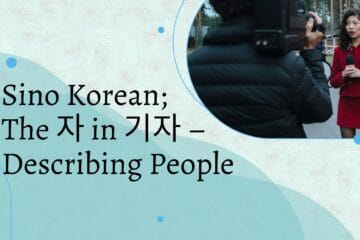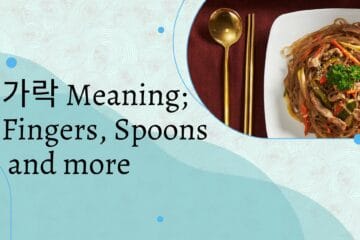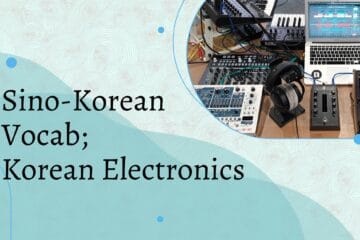Konglish comes from Korean + English and is the term used to refer to Korean loanwords from English. But there are more words in Korean grabbed from than just English! The biggest would be Chinese which is the origin of Sino-Korean words and numbers, which you can learn more about in my Sino-Korean introductory post.
Today we’ll get into loanwords from other countries. I would argue that Chinese influence is similar to Latin’s influence on English, and we don’t consider those to be loanwords (plus there is way too much to list out in one post) so I’ll skip all that but if you’d like to learn those you can check out the Sino-Korean category too.

드라마: Television drama
콘서트: concert
웹툰: webtoon (web + cartoon)
디카: digital camera
포크: fork
케이크: cake
아이스크림: ice cream
디저트: dessert
샌드위치: sandwich
피자: pizza
메뉴: menu
소울 푸드: soul food/comfort food
아아: iced americano
주스: juice
콜라: cola
원샷: drink in one shot
니트: knitted sweater
리본: ribbon/bow
리모컨: remote control
에어컨: air conditioner
오토바이: motorbike
오버: overdo, exaggerate
센스: “tact, wit” sense
싸인: signature
셀프: self-service
밴드: bandage/Band-Aid
랩: plastic wrap

Konglish Meaning Evolution
Some loanwords in Korean have evolved or changed much more past the definition in their original language. Also, there are words that Koreans have taken and used to make their own meaning, independent of any meaning in English!
Some are slang; like 아아 which is super shortened down, and others are just common words in informal and formal contexts like 스킨십 or 원피스.
아이 쇼핑: window shopping (eye shopping)
원 플러스 원: BOGO buy one, get one free (one plus one)
뉴트로: modernized retro trends (new retro)
서비스: free of charge/on the house (service)
스킨십: physical contact (skinship)
화이팅: phrase said to show support (fighting)
원피스: dress (one piece)
핸드폰: mobile phone (handphone)
셀카: Selfie (self camera)
노트복: laptop (notebook)
원룸: bachelor apartment (one room)
오피스텔: studio apartment (office hotel)
아파트: apartment
더치 페이: going Dutch (Dutch pay)
헌팅: trying to flirt and pick up someone (hunting)
미팅: group blind date (meeting)
포인트: important part/highlight of something (point)
비주얼: attractive appearance (visual)
스펙: achievement in your job/school (spec)
알바/아르바이트: part-time job – German (original meaning: job)
Konglish Combining English and Korean Words
노답: no + 답: no reply
따아: 따뜻한 + americano: hot americano
꿀잼: honey + 재미있다: super fun
노잼: no + 재미있다: boring/no fun
헬기: helicopter + 비행기: helicopter
Korean Loanwords from Japan
Now because of Korean and Japanese history there was a huge Japanese influence on the language for a while (influence aka inforcement). Under Japanese rule up until 1945, Koreans had to deal with the forced erasure of their language and so while the Korean language survived, the mark was still left.
You might see this with elderly people where they will use some Japanese words. Since the words came into use trying to replace Korean words they almost all have a Korean equivalent. For this reason, it was easy to encourage people to use normal Korean words instead of keeping the Japanese. As opposed to something like 핸드폰 where it’s a modern tech and Korea would have to make up a new word.
Of course, this was encouraged to try to regain their culture and identity after the war. Until recently anything and all things Japanese was highly restricted in South Korea. So any new potential Japanese loanwords had less of a chance to pick up until now.



0 Comments